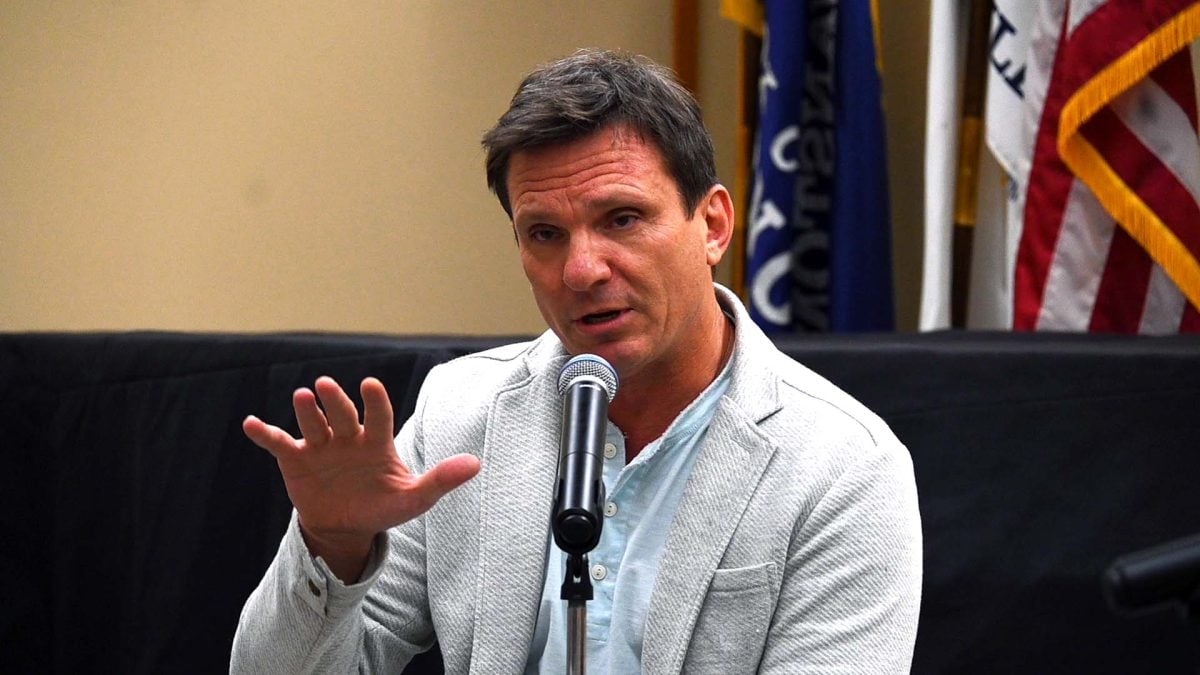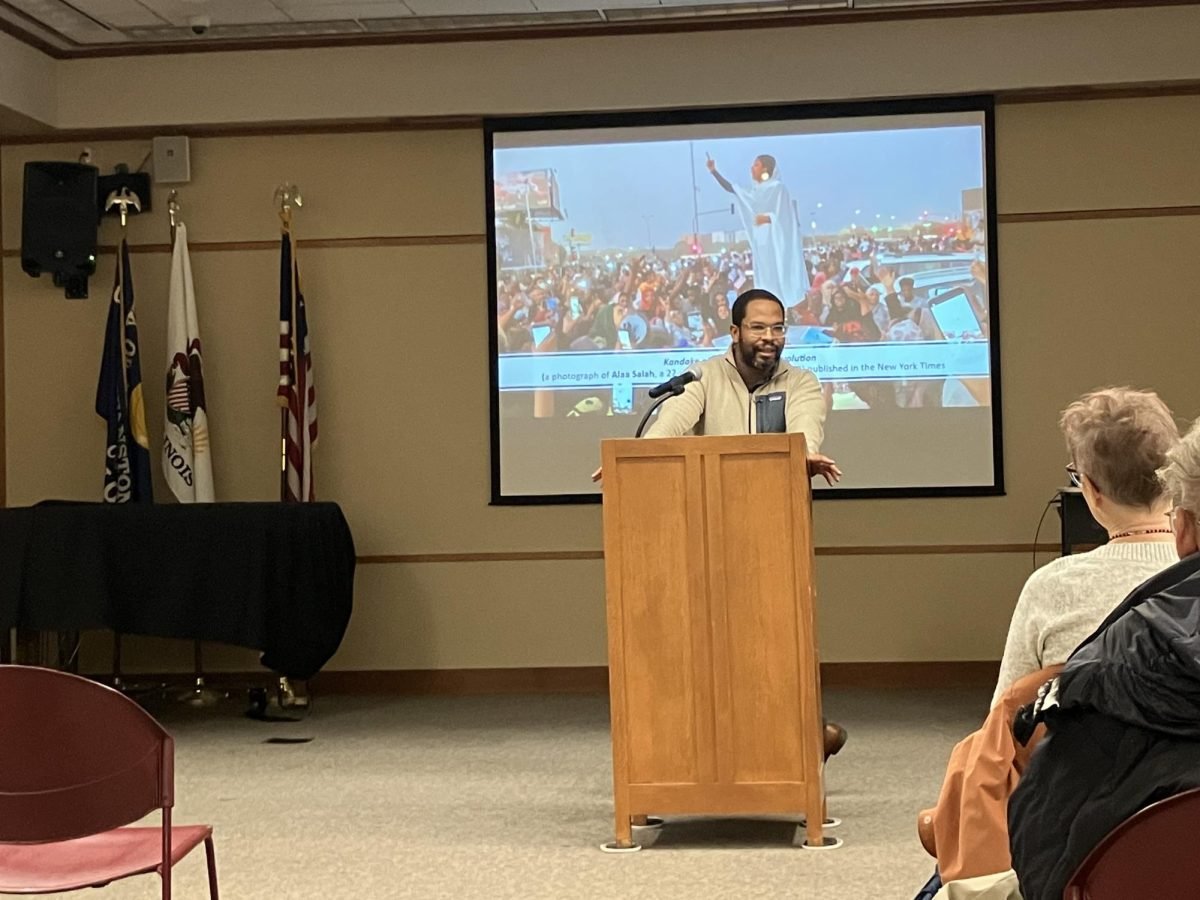Award-winning CNN Chief Climate Correspondent Bill Weir discussed stories and ideas from people who are thriving in the wake of climate change as part of his new book, “Life as We Know It (Can Be),” at Evanston Public Library on Sunday afternoon.
Weir said his book started as Earth Day letters of apology for his son, expressing his regret about the future of the environment. These letters led him to think about how someone should live as the Earth overheats, he said.
Weir read the prologue of his book, which is one of the letters he wrote to his son, to an audience of about 60 people. Weir said though the letter was meant for his son, the letter is really for everyone.
“(The letter) is a reminder (that) we lack the capacity to imagine the worst that can happen on an overheating planet,” Weir said. “But we also lack the capacity to imagine the best of a future.”
Weir claimed many Americans have “pluralistic ignorance” about climate action which he said is a misconception that occurs when people believe that others primarily hold a different opinion from their own.
Most people assume less than half of the population supports meaningful climate action when in actuality more than two-thirds of the population supports action, according to Weir.
“The tools for a more sustainable, healthier, happier, wealthier future are really ours for the taking,” Weir said.
Weir said a news consultant once told him that local viewers only care about news within their community. Since then financial crashes and pandemics have proven that global stories can become local, he said.
Weir said he implores local, especially weather, news to begin connecting the dots between global natural disasters and climate change to what is happening locally.
“These days it still is such a novelty to hear local folks talk about the story of climate change because it’s been so polarized and so stigmatized and so loaded,” Weir said.
Everything will change, including insurance policies, property values, zoning and construction because of climate change, Weir said. He said he hopes his book will start daily conversations about these changes.
After Weir talked about his book, program director of Friends of the Forest Preserves in Cook County Radhika Miraglia and co-leader of Edible Evanston Laura Bradley joined him in discussion.
Weir said one of his book’s biggest takeaways is to lean into community and nature to build resiliency. He asked Miraglia about the current connection between the local community and the forest preserves.
“Unfortunately, a lot of people in Cook County have grown up thinking that the forest preserves are not for them,” Miraglia said. “We’re really working hard to break that barrier.”
Bradley said she enjoyed Weir’s chapter on food as it relates to Edible Evanston’s focus on the intersection between food and the environment.
She said she appreciated the book’s discussion of soil health, which is crucial for growing food with Edible Evanston.
“I appreciated that (the book) talked about soil health and the ability of soil to be a carbon sink and how important that is in terms of drawing down carbon out of the atmosphere,” Bradley said. “That’s something that we talk about and we work on a lot because a lot of the traditional ways of farming are bad for the soil.”
Bradley asked Weir how to talk to kids about climate change because it is a difficult but pertinent issue.
Weir said he believes education about climate change starts with a foundation of ecological literacy. He said it begins with identifying soil as a living thing and not just dirt.
“I think just by plugging them into the natural cycles, and then explaining as they get more mature, unfortunately, we made some mistakes,” Weir said. “It’s going to make things rough, but we have to be strong, and we have to be united and we have to be prepared.”
Email: [email protected]
Related Stories:
—Advocates in Evanston and beyond call for K-12 climate education


















